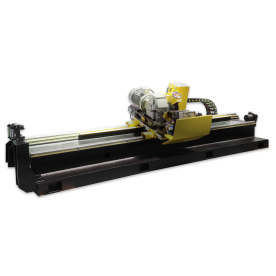
The Importance of Customized Spare Parts for Tube Mills: Enhancing Efficiency and Reducing Downtime in Manufacturing Processes
In today’s fast-paced industrial landscape, tube mills play a crucial role in metal fabrication, producing a wide array of tubular products for various applications. These machines, designed for efficiency and precision, require regular maintenance and replacement of components to ensure continuous operation. One aspect of this maintenance that often goes overlooked is the significance of customized spare parts for tube mills. Customization in spare parts translates to longevity, reliability, and improved performance, which are imperative for minimizing production downtime.
Understanding Tube Mills
Tube mills are specialized machines that shape metal into pipes or tubes through a series of processes, including forming, welding, and finishing. They are widely used in numerous industries such as automotive, construction, and oil and gas. The efficiency of these mills relies heavily on the quality of the components used within them, making the procurement of spare parts a critical factor in maintaining operational standards.
The Need for Customization

The Importance of Customized Spare Parts for Tube Mills: Enhancing Efficiency and Reducing Downtime in Manufacturing Processes
While standard spare parts may serve in a pinch, they often fail to meet the exact specifications required for optimal performance in specific tube mills. Manufacturing environments can have varying requirements depending on the materials processed, the scale of operations, and the specific configurations of the mills. This is where customized spare parts come into play.
Customized spare parts are designed and manufactured to meet the exact specifications of an individual mill or production line. This can include dimensions, materials, and interactions with other machine components. By opting for custom solutions, businesses can address specific operational challenges, enhance machine performance, and extend the lifespan of their equipment.
Benefits of Customized Spare Parts
1. **Enhanced Performance**: Custom spare parts are engineered to fit seamlessly with existing equipment. A precise fit minimizes vibration and misalignment, which can lead to increased efficiency and reduced wear on machinery.
2. **Reduce Downtime**: Downtime can be incredibly costly in manufacturing. When machinery fails, businesses can experience delays that impact production schedules and revenue. Customized spare parts can lead to quicker repairs and replacements because they eliminate the need for cutting, welding, or additional adjustments—a critical advantage in a production environment.
3. **Increased Lifespan of Components**: Standard parts may not effectively withstand the specific stresses and tolerances of all machines. Customized parts can be tailored from more durable materials, which can withstand higher temperatures, pressures, or corrosive environments commonly found in industrial settings.
4. **Better Cost Management**: Though the initial investment for customized parts might be higher than standard parts, they can provide significant savings over time. The longevity and performance improvements contribute to lower overall maintenance costs and less frequent need for replacement.
5. **Support for Specialized Applications**: Certain projects may require specialized techniques or unique configurations that standard parts cannot accommodate. Customized solutions ensure that even the most niche operations can achieve their production goals seamlessly.
Implementing Customized Spare Parts
To efficiently incorporate customized spare parts into your operations, consider the following steps:
1. **Assessment of Needs**: Evaluate existing equipment and identify areas where performance can be improved through customization. 2. **Collaboration with Suppliers**: Partner with manufacturers or suppliers specializing in custom spare parts. They can provide valuable insights based on industry trends and practices.

The Importance of Customized Spare Parts for Tube Mills: Enhancing Efficiency and Reducing Downtime in Manufacturing Processes
3. **Prototyping and Testing**: Create prototypes to test the fit and performance of the customized parts before full-scale deployment.
4. **Regular Maintenance**: Implement a routine maintenance schedule to monitor the performance of customized parts, ensuring that they continue to operate at peak efficiency.
Conclusion
In conclusion, customized spare parts for tube mills are more than just an option; they are a necessity for companies looking to stay competitive and efficient. By tailoring components specifically to the requirements of the tube mills, businesses can maximize operational efficiency, reduce downtime, and ultimately drive down costs. As manufacturing continues to evolve, integrating customized solutions will ensure that tube mills operate smoothly and effectively—delivering quality production now and into the future. Leveraging the advantages of customized spare parts might just be the strategic move your operation needs in a challenging industrial landscape.Precision induction heating equipment


